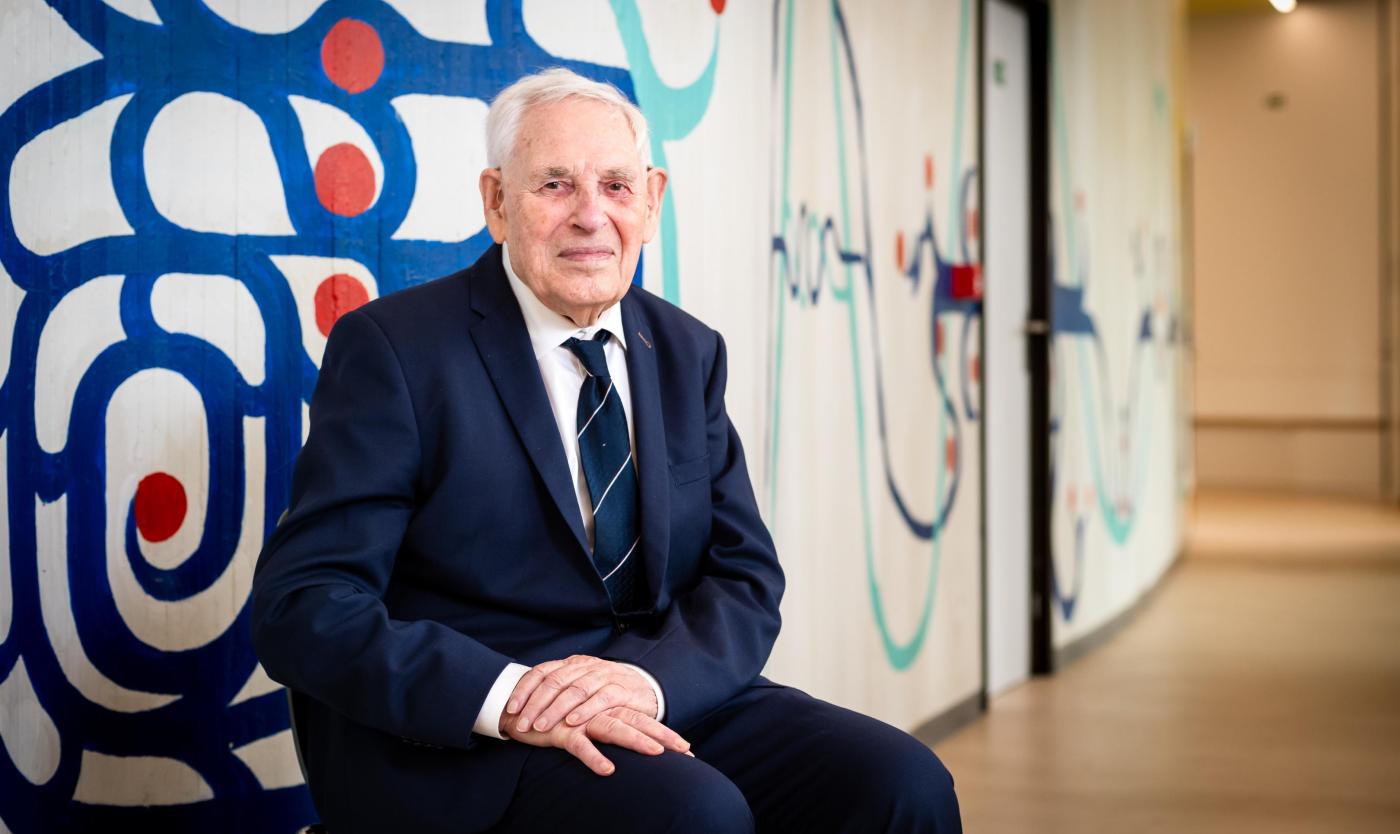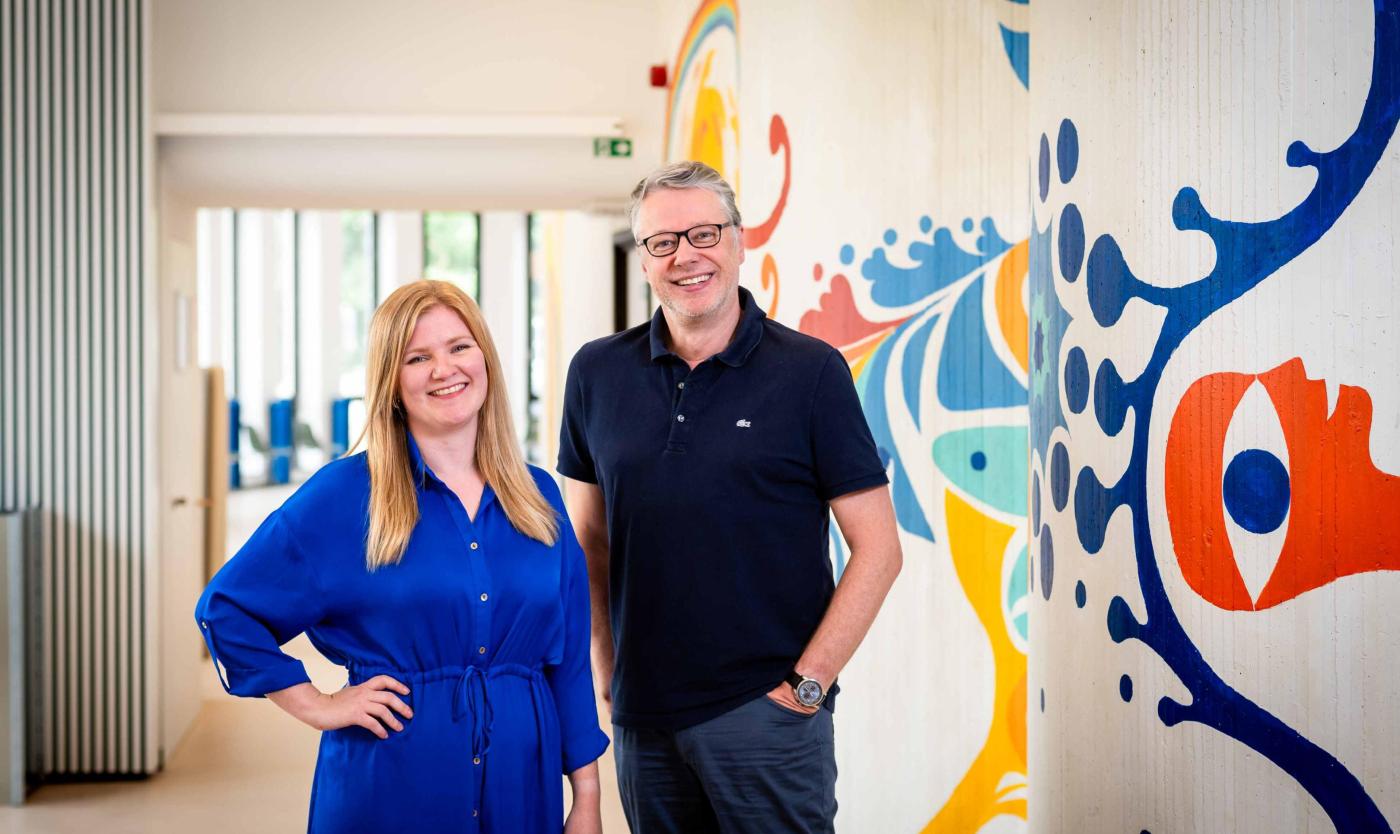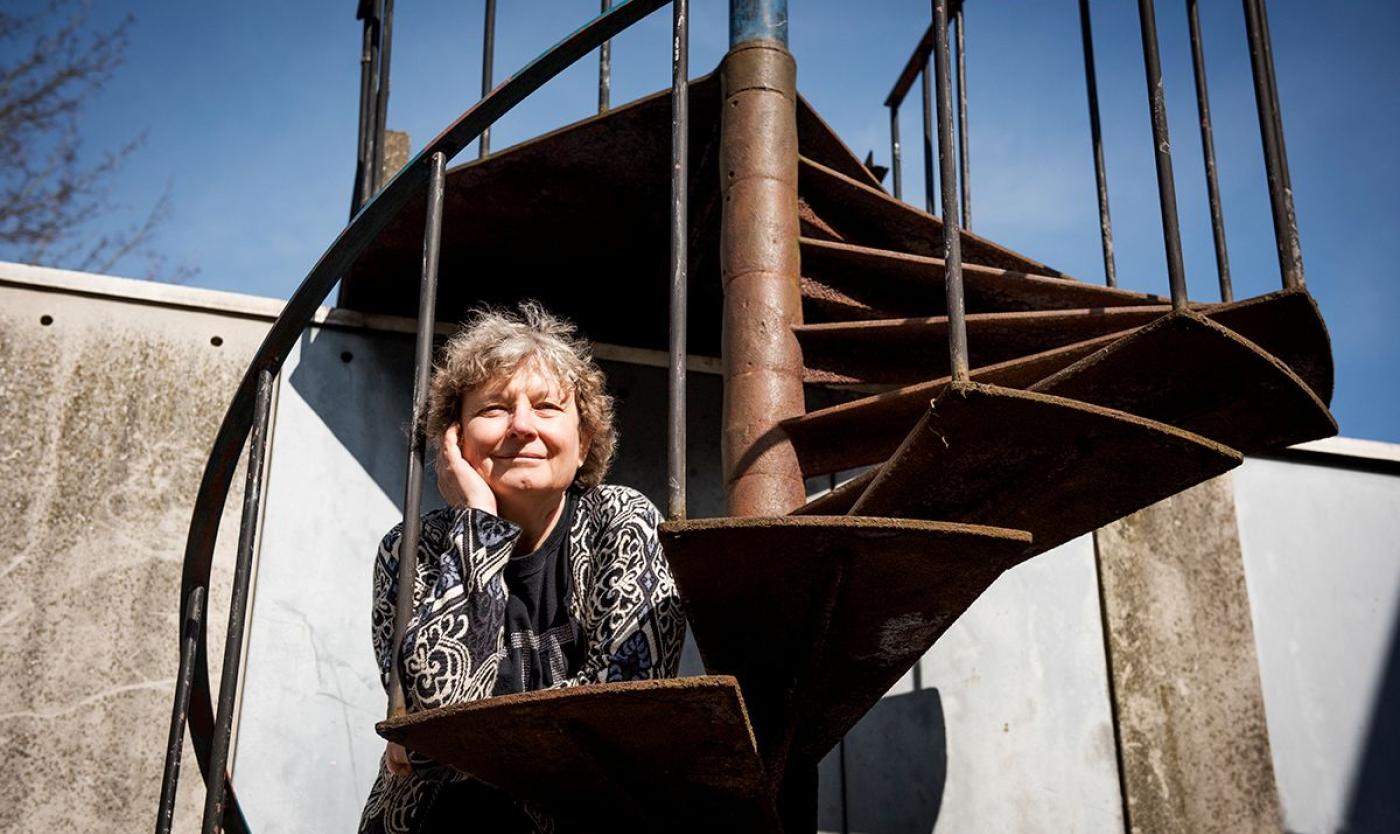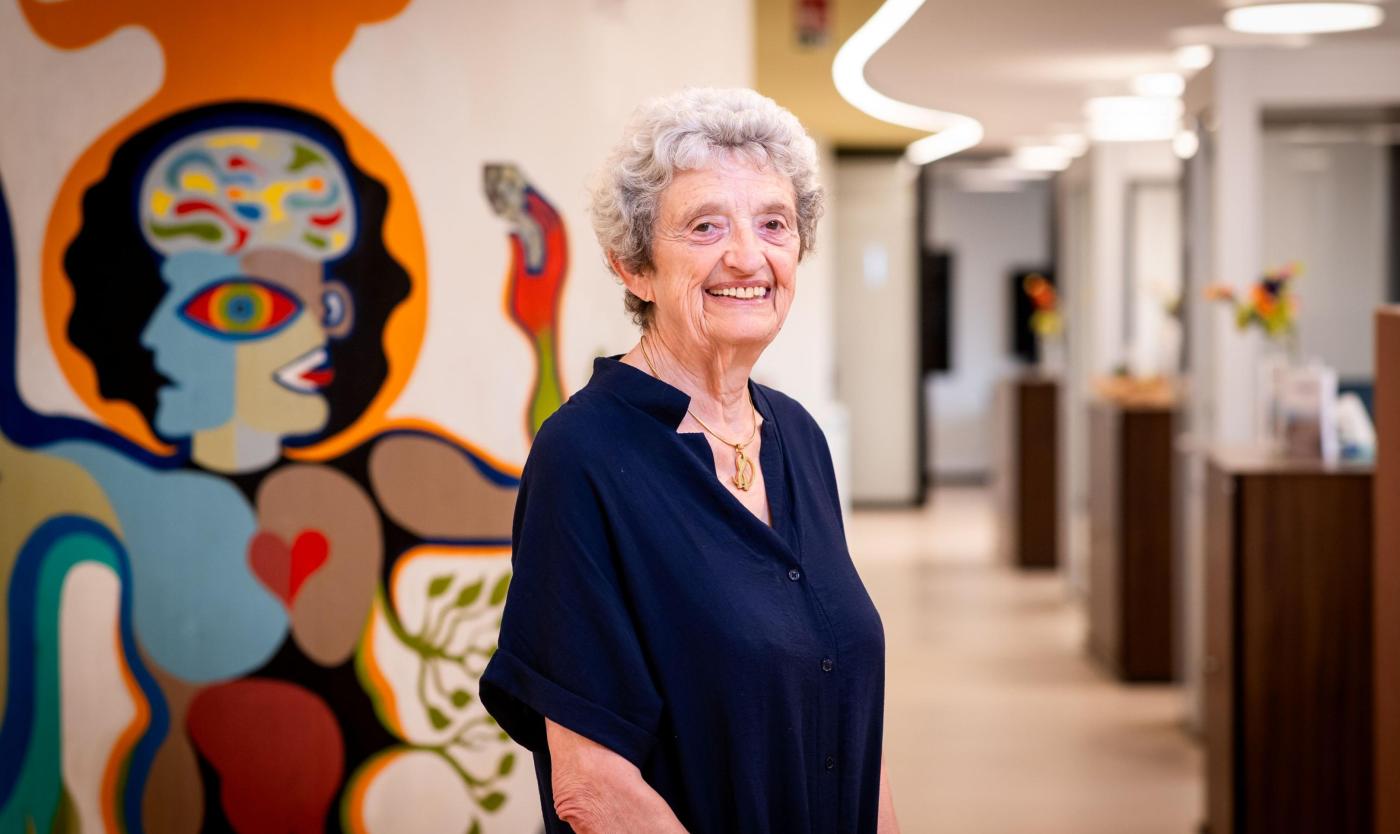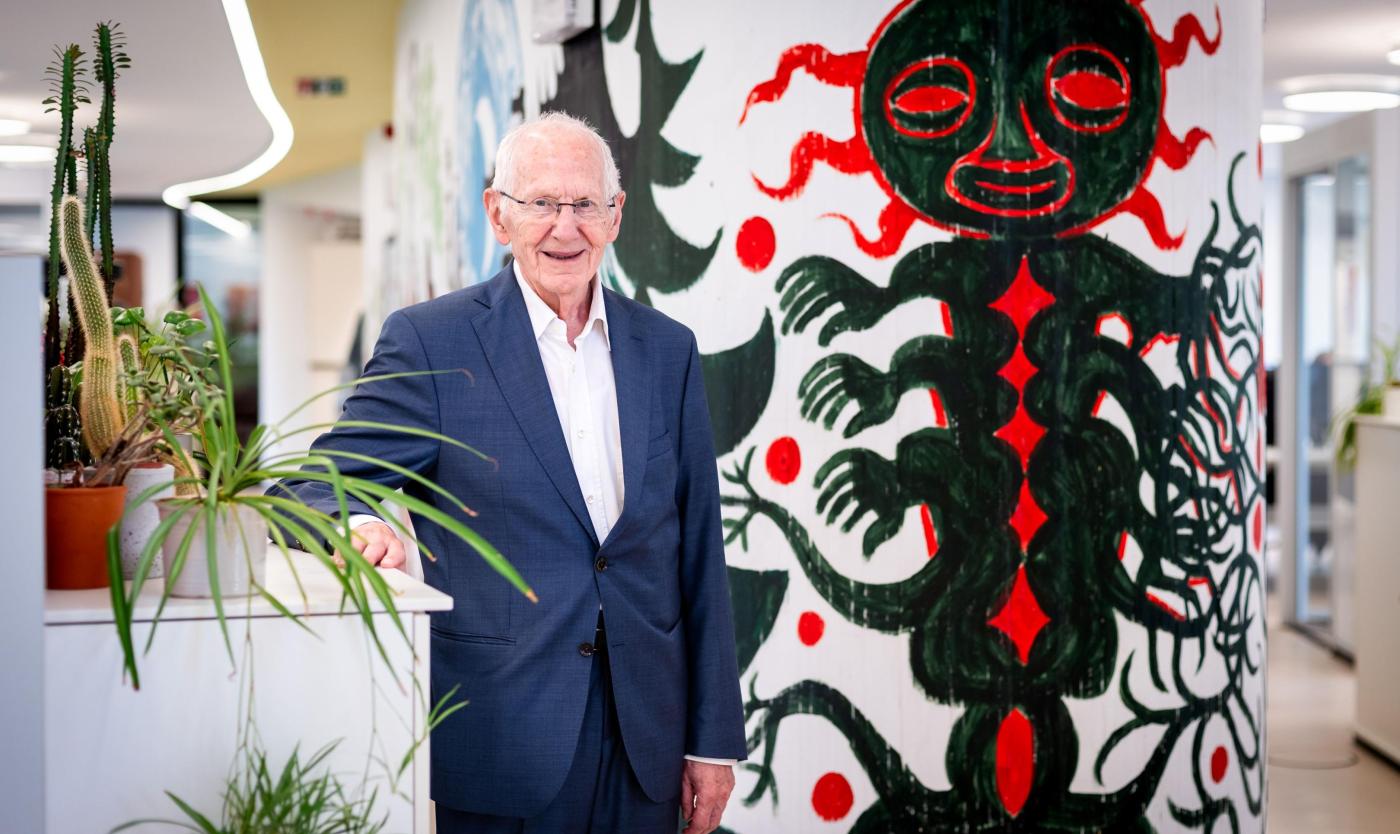
As a professor of history, Els Witte (b. 1941) was one of the pioneers in the study of Belgium’s contemporary history. In 1994, she became the first female rector of the VUB, though her heart always remained with her discipline. “My condition for accepting the post of rector was that there would be life as a historian after my rectorship.”
What first attracted you to contemporary history?
“I was fascinated by politics from a very young age. By the age of ten, I was already following political debates. That passion came from my father. He was Dutch and had a strong interest in politics in the Netherlands. From the beginning, he encouraged me to adopt a critical mindset. Over time, I also became curious about the historical perspective on current politics. I wanted to study contemporary history at university, but because I hadn’t taken Latin and Greek at secondary school, I didn’t meet the entry requirements. So, I ended up at a teacher training college. My history lecturer there noticed my talent and interest, and said firmly: ‘It would be unthinkable for you not to become a historian.’ He drew up an entire plan: one year of Latin and Greek, then sitting my entrance exam through the state examination board. Thanks to that, I was able to pursue a degree in history at Ghent University. When you consider the effort I had to put in just to study what I wanted, you can see how deep my love for history really was.”
What do you see as your greatest contribution?
“It’s difficult to rank them, but if we look at the three core missions of a university – teaching, research, and social impact – I believe I made contributions on all fronts. In teaching, I tried to pass on knowledge that at the time was still quite new. At one point, I was teaching 1,300 students. I always took care to maintain quality. That meant my courses were not always seen as easy, but I believe my students benefited from them. In terms of research, I was the first – back in the 1970s – to apply approaches from political science to the study of contemporary history. In English-speaking countries, there was already some literature in this area, but in Belgium the field was still embryonic. Finally, I also made a societal contribution by founding BRUT, a research centre where we studied Brussels’ language issues in a multidisciplinary way. At one point, I had 15 researchers working there – exceptional for the humanities.”
"I have always tried to pass on my knowledge, which was quite new at the time, to my students. As a result, my course was not always considered easy"
You haven’t mentioned your rectorship, yet from 1994 you served six years as the first female rector of VUB.
“That’s true. Perhaps I should have mentioned it, but it was a very difficult time. My partner and my mother both died, and I was diagnosed with cancer. I gave my first academic address just after my first chemotherapy session.It was also one of the hardest periods in VUB’s history. The then Education Minister, Luc Van den Bossche, argued that several programmes had to be cut due to austerity measures. Physiotherapy was one of the courses under threat. I had to fight, fight, and fight again. My speeches were all about struggle. With the help of many at VUB, we prevailed – but looking back, it feels like an overwhelmingly heavy period.”
“Being a woman in a male-dominated environment was not always easy either. That was true not only at VUB, but also when I chaired the board of the VRT. At that time, there were hardly any women in top positions. I was often ‘the one woman’ invited to the table because a few forward-thinking men thought it should be different. Being the only woman at that level was not an easy position. First, you needed a man to nominate you, otherwise you stood no chance. Second, you had little choice but to behave like a man – it was the only way to achieve your goals.”

"As a woman, it wasn't always easy in a man's world you had no choice but to behave like a man to achieve your goals"
Where do your work and passions meet?
“They’ve always been deeply intertwined. My partner was also a historian. At home, history was ever-present. Only the rectorship disrupted my research. That made that period even harder – my heart was always in history. In fact, when I accepted the post, I made it a condition that there would still be a life in history afterwards. And thankfully, there was. Even today, my life revolves around history. Since the end of my rectorship, I’ve been working on my seventh book.”
How do you see your field evolving?
“I’ve always followed it closely. I even taught the course Theory of History, and I continue to write books on historiography, the evolution of history as a discipline. To put it briefly, I began my career at a time when the nouvelle histoire was in vogue. This approach, which emerged in the late 1930s and became especially popular after the Second World War, places people and their behaviour at the centre of history. It’s not so much about facts, but about studying problems from multiple perspectives – political, economic, social, cultural. According to the nouvelle histoire, all these dimensions are interconnected. Since the late 1990s, however – and continuing today – narrativism has gained ground in the humanities, including history. Narrativists argue that everything written is a story: not facts, but representations. I have remained loyal to the nouvelle histoire, but in my latest book, Nation-Building in Belgium, I’ve also integrated insights from narrativism. One has to learn from the way the discipline evolves, without discarding what remains important.”
About the new science awards
In 2025, VUB launched a new research awards policy in collaboration with the Scientific Support Fund. In addition to the existing Roger Van Geen Prize for exceptional scientific careers and the Ignace Vanderschueren Prize for doctoral research, both already awarded by the Vice-Rectorate for Research, seven new prizes have been created, named after pioneering figures from VUB’s history. With this policy, the university aims to recognise outstanding scientific work at every stage of an academic career.
An overview
- Hilde Bruers Award – Life Sciences (young researchers, max. 10 years of seniority)
- Paul De Vroede Award – Human Sciences (young researchers, max. 10 years of seniority)
- Ingrid Daubechies Award – Basic, Natural and Applied Sciences and Bioengineering Sciences (young researchers, max. 10 years of seniority)
- Franz Bingen Award – Basic, Natural and Applied Sciences and Bioengineering Sciences (mid-career researchers, 10–25 years of seniority)
- Liebaers–Van Steirteghem Award – Life Sciences (mid-career researchers, 10–25 years of seniority)
- Els Witte Award – Human Sciences (mid-career researchers, 10–25 years of seniority)
- Sylvain Loccufier Award – career award for researchers who combine scientific excellence with social impact in the spirit of the values of the VUB
Procedure
The Roger Van Geen, Hilde Bruers, Liebaert–Van Steirteghem, Franz Bingen and Sylvain Locufier Prizes will be awarded biennially from 2026 onwards. The Ignace Vanderscheuren, Paul De Vroede, Els Witte and Ingrid Daubechies Prizes will follow the same rhythm from 2027. The call for nominations is issued in September, with 15 December as the submission deadline. Files are evaluated by the Bureau of the Research Council or by an ad hoc committee (for the Sylvain Loccufier Prize). The Scientific Support Fund makes its final decision by 30 March, and the award ceremony takes place before 30 May.
The prize money is €5,000 for young researchers and €10,000 for mid-career researchers, in each case in the form of a working credit. The Sylvain Loccufier Prize does not involve a cash prize, but a work of art.
View the Vice-Chancellor's call for 2025(through WeAreStaff)
*For medical reasons, it was not possible to interview Prof. Emeritus Franz Bingen in time for this series.
